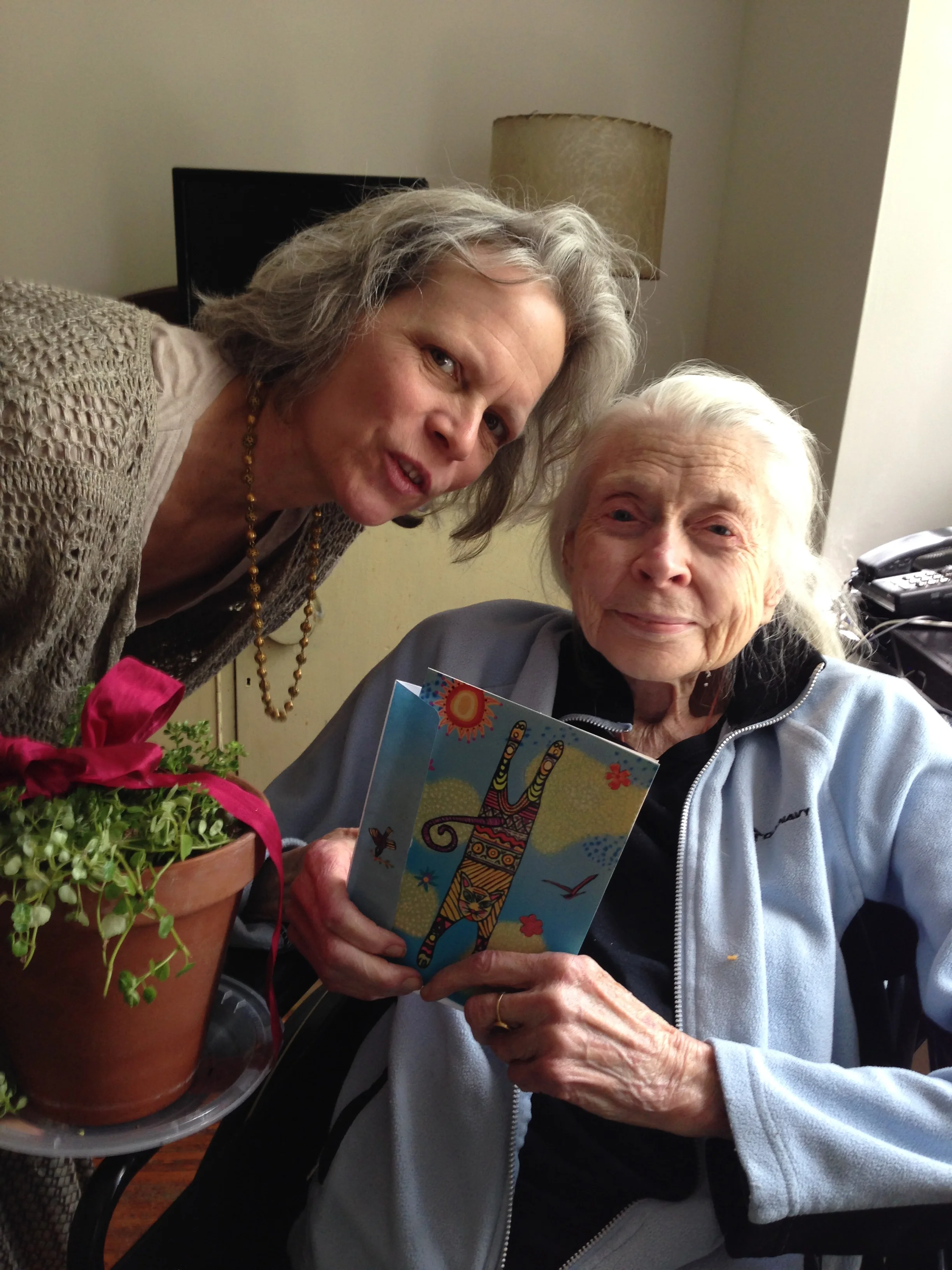Today I went to a meeting for the Radical Age Movement where people in their 60s and 70s, all of whom were working, articulated their experiences with ageism and why the old are the last group left to face discrimination. All other marginalized populations have had their shifting views movements. I heard how a professor can not say to himself or others that he attributes his skills at being effective to his age. I heard that being offered a seat on the bus evokes widely different emotions and actions. I think this organization will use the experiences of people currently in their 80s and 90s to change the perceptions of age, disability and community of care fast forwarded 20 years.
Today I got email from someone who was trying to connect me to the senior services for an extra large apartment complex in New York City where people have aged in place. The feedback from the director of the senior program was that the images of old people on my business card are "depressing" and that I should say that I make "house calls" instead of provide accessible care for the "homebound" because that's "negative." I think that the reason that the homebound elderly are invisible is not because they can not leave their homes but because many people choose not to acknowledge them.

